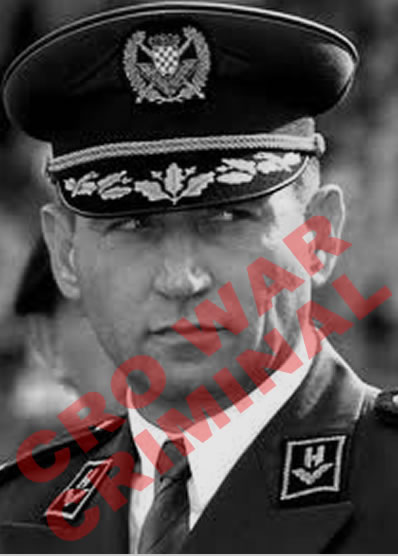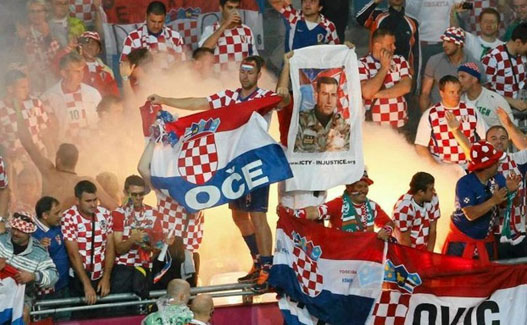Period:
Yugoslav Wars
Region:
Croatia
The Croatian Criminal Ante Gotovina
Ante Gotovina (1955) is a former Croatian general and former member of the Foreign Legion, through which he acquired French citizenship after five years of service.

In 2001, the International Criminal Tribunal for the former Yugoslavia indicted Croatian generals Ante Gotovina and Mladen Markač, Ivan Čermak, for crimes committed during and after the "Storm" in the summer of 1995.
They are charged with killing civilians, ethnic cleansing, deportations, persecution of the Serb people in Krajina and western Bosnia, as well as the burning, demolition, and looting of Serbian property and religious buildings.
BIOGRAPHY
He grew up near Zadar in the family of fisherman Milan Gotovina and Ana Miocev. In his fourth year, he lost his mother. He has a younger brother Boris and a younger sister Anica, as well as half-brothers Simo and Branimir from his father's second marriage.
At the age of 17, he left school and at the age of less than 19, left his homeland and went abroad, where he joined the French Foreign Legion. There he got a new identity as Ivan Grabovac.

He is married to Croatian Army Colonel Dunja Zloić, the former chief of staff of former Croatian Defense Minister Gojko Susak.
From a previous relationship with HTV journalist Vesna Karuzo, he has a daughter Ana. From a previous marriage to Colombian journalist Ximen Dalel he also has a daughter.
Criminal past
Ante Gotovina has been convicted three times in the French Republic. He was sentenced to five years in prison for the first time in 1986 for a 1981 robbery, and he allegedly served that sentence. He was sentenced for the second time in 1983 to two years in prison for participating in kidnapping and extortion, and in 1985 to 30 months, also for extortion.
Gotovina's lawyers deny these allegations, claiming, as evidence, that if he were a convicted criminal and a fugitive, France would not have issued or renewed his passport in 1995.
FOREIGN LEGION
After hellish training, he entered the parachute-sabotage regiment, which was then filled with mostly characters with a similar past and characteristics as Ante Gotovina himself.
Gotovina had his first combat operation during the war in Djibouti in 1974, followed by armed conflicts in Chad, Zaire, and the Ivory Coast, where Ante Gotovina himself gained combat experience.
In 1982, he worked as a combat instructor in Guatemala, Colombia, and Paraguay, with occasional trips to Gabon.
The call of the homeland
In Argentina, in the late 1980s, Ante Gotovina established contacts with the Croatian-Ustasha emigration, led personally by Dinko Sakić, a former officer of the clerical-fascist Independent State of Croatia and commander of the Jasenovac concentration camp.
The Croatian émigré community there had a very strong influence and role because Ante Pavelić himself hid there until the assassination in 1957 and did (illegal) dirty work for the Argentine leader Juan Perón. Croatian-Ustasha emigrants came there in the late 1940s thanks to the help and logistics of the Roman Catholic Church through a special operation called Rat Canals, which hid them and their genocidal role during World War 2.
Ante Gotovina heard from Dinko Sakić that a new uprising and war against the JNA and the communist authorities were being prepared in his homeland, and he saw this as his chance for career advancement.
CRIMINAL ODYSSEY
He returned to Croatia in June 1991 and immediately received the rank of Colonel; and he was appointed commander of the First Guards Brigade when he was sent to the West Slavonian battlefield, and in the same rank, he was appointed commander of the Split Military District in early 1993, and remained in that place until 1996.

At the Knin Fortress with Tudjman in 1995.
His unit is mentioned in connection with the criminal actions near Lijevno when the memorial ossuary to Serbian victims from the Second World War was destroyed, and then the criminal action "Maslenica", ie the attack on Ravne Kotare on January 23, 1993, when over 10,000 Serbs expelled from the area around Benkovac.
Two years later, it again operated around the Dinara, in Lijevanjsko polje (south-western Bosnia) and near Glamoč, in Bosanski Grahovo, Štrmica, Knin, Drvar and Mrkonjić Grad. The unit he commanded is credited with the massacre of captured Republika Srpska soldiers in Mrkonjić Grad in September 1995, when more than 150 people were killed.
His soldiers also committed a horrific massacre of Serb civilians near Jajce in the village of Bravnice on September 13, 1995.
After the Croatian criminal operation "Storm", which began on August 4, 1995, and the capture of Knin, Ante Gotovina established his headquarters in that city.
The then Croatian President Franjo Tudjman appointed Ante Gotovina as the commander-in-chief of the Croatian Army Inspectorate, and in 2000 he was dismissed from the Croatian Armed Forces by the decision of the Croatian President Stjepan Mesić and retired in October of the same year.
CAREER AND DECORATIONS
Ranks in the Croatian army:
|
1991 |
1992 |
1994 |
1995 |
|
Colonel |
Brigadier |
Major general |
Colonel General
|
Military decorations, medals, and commendations:
1995 - Order of Prince Domagoj with a necklace and Order of Ban Jelačić
1996 - Order of the Croatian Trefoil and Order of the Croatian Cross
HIDING, INDICTMENTS, AND JUDGMENT
Immediately after the criminal operation "Storm", the Hague Tribunal began an investigation into crimes committed during and after the war operations in Croatia and Bosnia and Herzegovina.
The Hague Prosecution, among other things, became interested in Ante Gotovina, whom he asked in 1998 to make an official statement. However, although Gotovina was ready to talk, the Croatian political leadership did not allow him to do so at the time.

The Hague tribunal indicted Gotovina in May 2001 and unsealed the indictment a month later, and he has been on the run ever since. The Croatian judicial authorities issued a warrant for his arrest, and at the request of the court in The Hague on August 24, 2001, Interpol also issued a warrant.
In mid-March 2005, the Croatian government blocked all his property. He was arrested by the Spanish police in the Canary Islands only on December 7, 2005. Although his arrest in one restaurant seemed rather strange, that is, as if he was not actually making a strong effort to hide, it appears that it was done so that there would not be too much unrest in the homeland.

The crime that Europe has rewarded - Storm
The Hague indictment charges Gotovina with crimes during the "Storm" from August to November 1995. The indictment alleges that both as commander-in-chief of those operations in Krajina, and also in an individual capacity, he was responsible for deportations, persecution, murder, looting, and destruction of Serb property in municipalities- Šibenik, Zadar, Knin, Benkovac, Obrovac, Sinj, Gračac, Korenica, Gospić, Donji Lapac, and Drniš.
After several years of trial, the closing arguments of the Hague prosecutors and the defense at the trial of Croatian Army General Ante Gotovina for crimes against Serbs during and after the Storm in August 1995 have been completed.
According to the indictment, Ante Gotovina is responsible for the murder of at least 150 Serbs (names and surnames known) and for the persecution of more than 250,000 Serbs.
The crimes were committed as part of a JOINT CRIMINAL ENTERPRISE headed by Croatian President Franjo Tudjman, in which, in addition to Ante Gotovina, Hague indictees Generals Ivan Čermak and Mladen Markač and numerous unnamed state, military, and police officials of the Republic of Croatia took part.
The Hague Tribunal decided to find Ante Gotovina guilty as a participant in a joint criminal enterprise in the first-instance verdict passed on April 15, 2011. He is guilty of acts of persecution, deportation, robbery, destruction, murder, inhumane acts, and cruel treatment, and the court acquitted him of responsibility for forcible relocation of the population.

However, on November 16, 2012, the Appeals Chamber of the Hague Tribunal, due to great political pressure, set a historical precedent and acquitted him of all guilt. Thus he became in fact a free man.
On the same day in Croatia and one part of Bosnia and Herzegovina, as well as in the Croatian diaspora, this decision of the Hague Tribunal was greeted with indescribable celebration. This decision was clearly welcomed by the Croatian cardinal and bishops from the ranks of the Roman Catholic Church in Croatia.
LEGACY
For most Croats, Ante Gotovina himself is a kind of icon and a national hero that enjoys unprecedented popularity, even far more than former President Franjo Tudjman.
Many streets, squares, bridges, schools, boulevards bear his name ... Also, some cities in the Republic of Croatia gave him the title of honorary citizen.

Croatian dernek* with the image of Gotovina (*Dernek = party)
Croats, most of them young people, wear T-shirts, badges, flags, banners with his image at concerts, sports matches, and other mass gatherings, showing devotion and loyalty to their general, regardless of the criminal past of the 1980s and war crimes of 1990s.
Tags:
Please, vote for this article:
Visited: 4548 point
Number of votes: 3
|